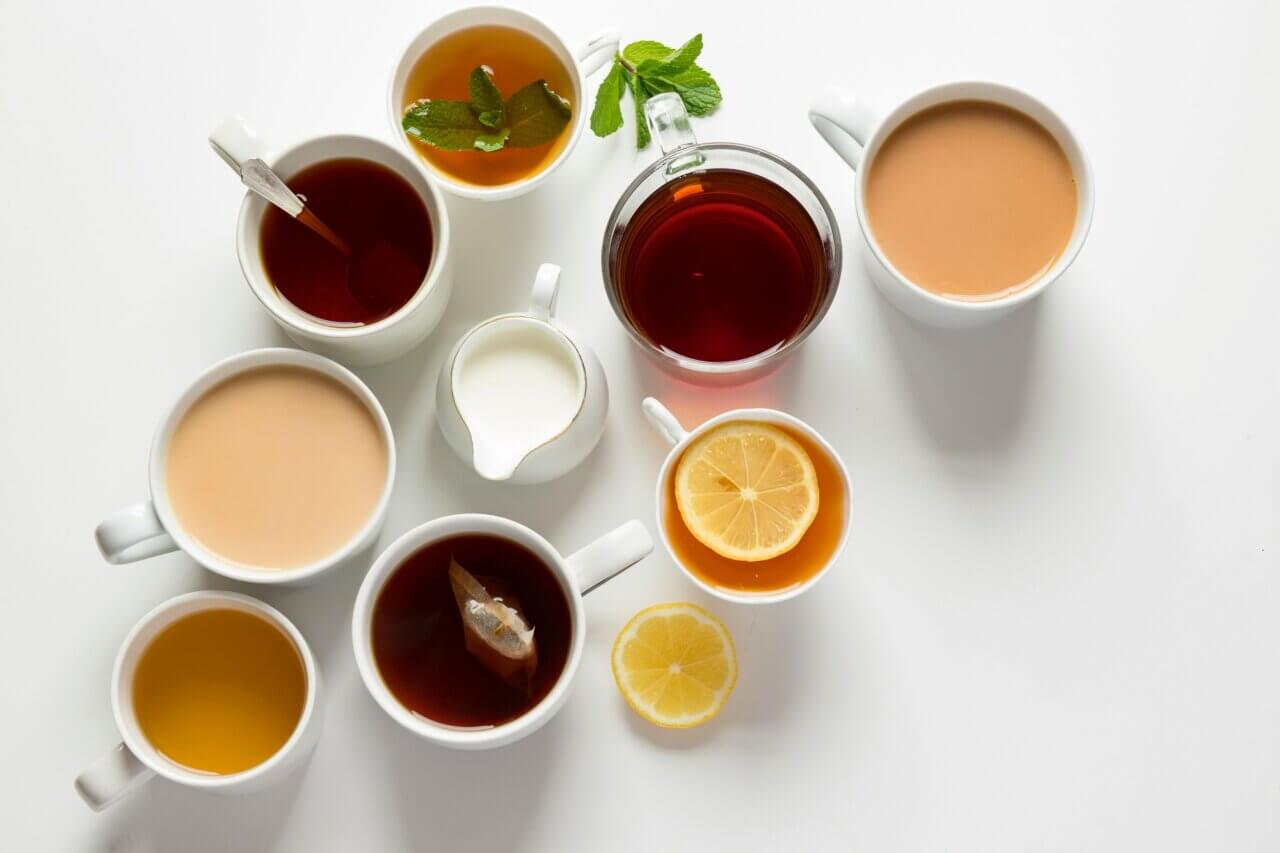Our Thoughts
Tea Time The cultural significance of tea in a time of crisis
Karl Marx declared that religion was the opiate of the people, but perhaps Orwell was right when he suggested that tea was “the English-man’s opium”. As Britons come together to celebrate their love of a cuppa on National Tea Day this year, the cultural significance of our nation’s favourite drink is all the more heightened in times of crisis. Tea has always played an important role in Britain during times of adversity. In World War II, the British government went to great lengths to hide their tea stockpiles, as people joked the nation would come to its knees if tea supplies were cut off. In 1942, the government even went on to buy all the black tea on the European market, as tea on the frontline provided soldiers with warming comfort, a nostalgic reminder of home, and a sense of national unity.
Although sales of black tea may have since been on the decline, with a reported 10% drop between 2015-2019 (due to the growing popularity of more sensual and wellness-based herbal infusion offerings) – it seems that in the face of Covid-19, its cultural associations with comfort, informal domesticity, and national unity, could renew the relevance of traditional tea. A look into the ways in which tea’s comforting values have historically been communicated by 3 leading black tea brands – PG Tips, Yorkshire Tea and Tetley – may offer some insights both within and beyond the tea category as to the visual and linguistic cues that can be used to comfort and unite the nation during this period of home-bound confinement.
From Coronation Street to Downton Abbey, ‘putting the kettle on’ is one of popular culture’s conduits for soothing conversations and close social interactions. The physical and metaphorical warmth of tea is evoked and harnessed by black tea brands in various ways. All three brands employ vernacular, peer-to-peer language (e.g. “let’s have a proper brew”, “share a cuppa”, and “now we’re talking”), and opt for regionally accented voiceovers together with Northern celebrity appearances (e.g. Sean Bean for Yorkshire Tea, Johnny Vegas for PG Tips) to convey the comforting sense of friendliness, warmth and familiarity that is elicited by Northern sociolects.
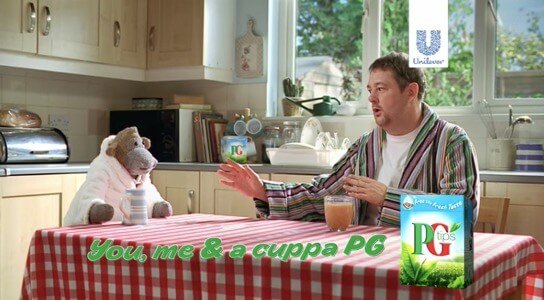
PG Tips and Tetley also draw on tea’s associations with comforting conversations by employing visuals of a pair of clinking mugs, alongside language of togetherness (“cuppas together”, “now we’re talking”). This is mirrored by their archetypal representation of light-hearted, everyday conversations within domestic spaces (e.g. kitchens and sitting rooms). The calming everyday-ness of these one-on-one interactions feels particularly suited to the current lockdown context, in which we’re both distanced and – for those who share a home – closer. PG Tips’ 2020 ‘Share a Cuppa’ campaign teams up with charities such as Samaritans and Reengage, in an initiative to combat loneliness. “At PG Tips, we know a thing or two about the magic of a cuppa and a chat in bringing people together”. More recently, the campaign has been adapted to encourage ‘virtual cuppas’, helping people to stay connected while distancing. Similarly, Tetley have adapted their ‘Now we’re Talking’ 2019 ad, bringing in visuals of video-talking apps to encourage digital togetherness. Through language of unity (e.g. “staying connected”) and sharing, together with visuals focusing on two individuals, tea brands code the comfort and consolation of in-depth chats and restorative check-ins with loved ones, whether in-person or online. It’s not about the flavour, or strength of tea at all – it’s about the strength of social bonds that tea, as a cultural idea, reveals and confirms.
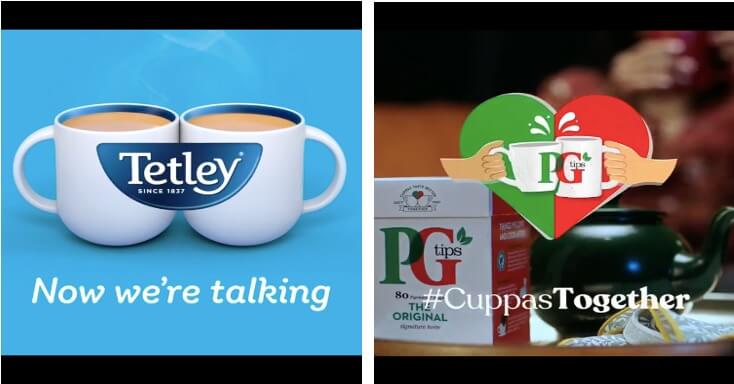
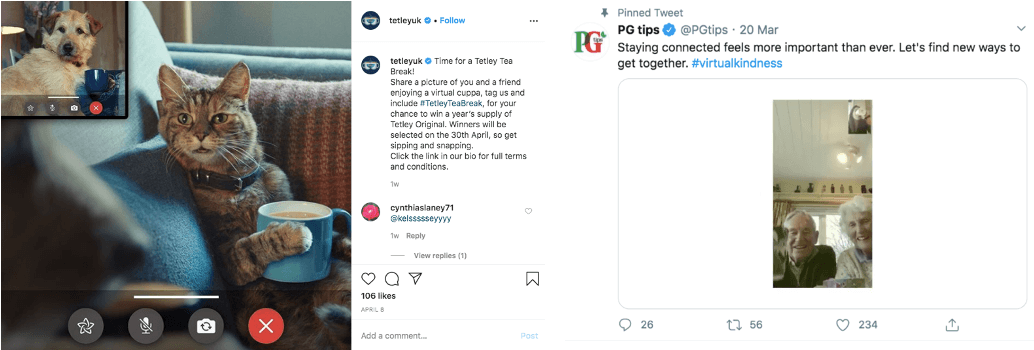
Evocations of nostalgia and familiarity also play a key role in conveying comfort to consumers. PG Tips, Tetley and Yorkshire Tea all make continuous use of historic brand equity, alongside childhood references, to communicate calming reassurance. PG Tips’ iconic monkey puppet, used since 2007, evokes the childhood nostalgia of children’s television or tea parties with stuffed animals. The knitted monkey sock also marks a continuation and direct reference to the anthropomorphic chimpanzees used in PG Tips’ advertising from the 1950s to the early 2000s, memorable for older consumers. Meanwhile, Tetley’s animated ‘Tea folk’ similarly convey childhood nostalgia through their evocation of children’s cartoons (e.g. Wallace and Gromit), as well as through their long-held familiarity, given the characters’ use since 1973. In an altogether different manner, Yorkshire Tea’s signature on-pack rural landscape remains largely unchanged since 1984, and codes the comforting simplicity and nostalgia of ‘the good old days’ through its bucolic visuals of cricketers, cottages and lambs in the traditional style of a regional landscape. Additionally, Yorkshire Tea has previously made use of ‘throwback’ childhood references, such as their 2015 limited-edition collaboration with The Gruffalo, in order to further imbue the brand with comforting nostalgia. The longevity and familiarity connoted by these tea brands’ unchanging mascots and iconic pack visuals helps to establish the brands – and tea – as reassuringly reliable and stable. Amidst the chaos and uncertainty of life, PG Tips, Tetley and Yorkshire Tea’s proffer the solace of unchanging campaign continuity, while their use of childlike visuals (e.g. puppets, animations and storybook collaborations), and scenes of nostalgia (e.g. bucolic rural landscapes) evoke the comfort of simpler times and youthful innocence.

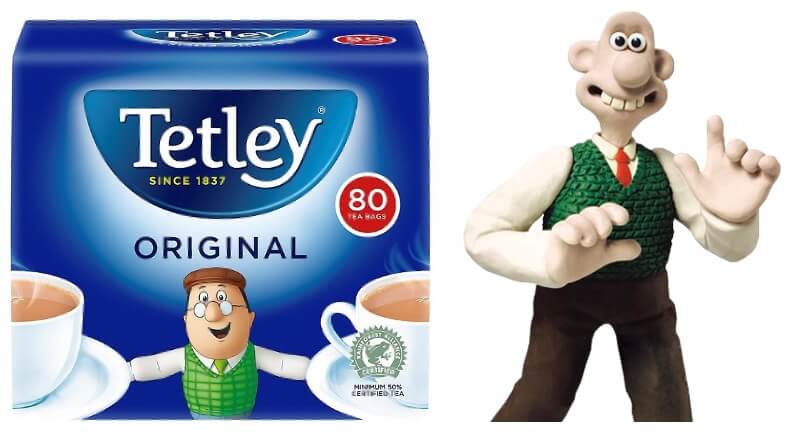
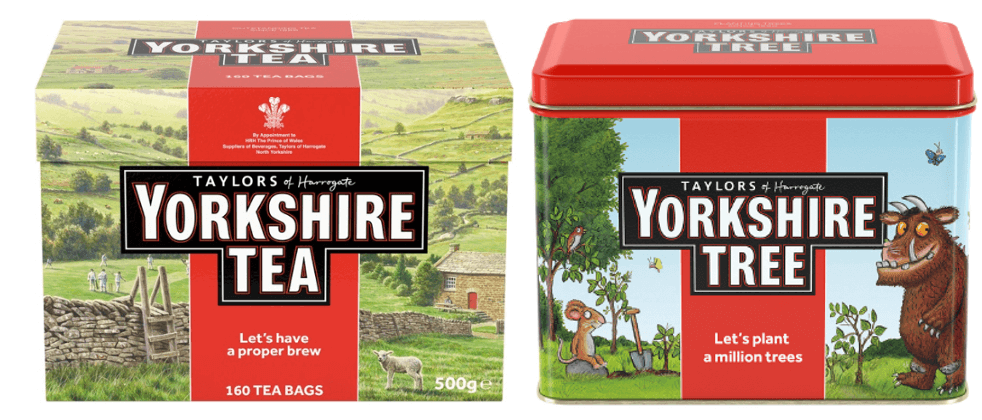
Together, PG Tips, Tetley and Yorkshire Tea demonstrate how evocations of nostalgia through historic brand equity and references to childhood, together with representations of familiar homeliness, peer-to-peer language, regional accents, and cues of close-knit, one-to-one togetherness, can be harnessed to communicate comforting unity in these troubled times. However, while black tea’s cultural associations may be all the more relevant in this time of social crisis and isolation – the traditional tea category might also benefit from future-facing their brands by aligning with some of the values espoused by the rising herbal tea category – such as wellness, self-care and sensual exploration – in order to update their comfort appeal for newer generations.
Maria Victoria O’Hana, Semiotician
